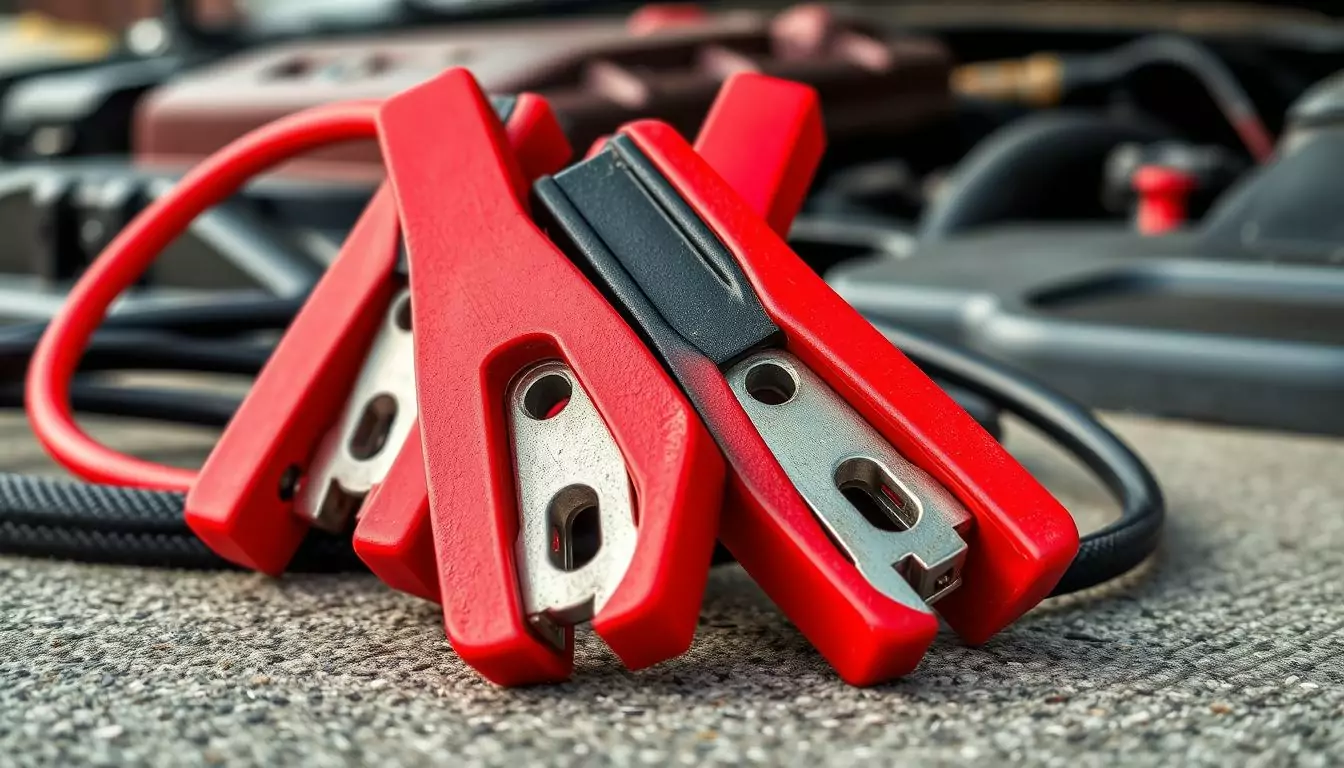I once faced a freezing night with a car that wouldn’t start. This taught me the value of being prepared. Now, I’m sharing my knowledge about good jumper cables with you.
This guide covers everything you need to know about selecting the best automotive jumper cables. We’ll explore key features and safety tips for jump-starting your vehicle. My aim is to help you make a smart choice in emergency car jump start cables.
Let’s explore jumper cables together. I’ll share my experiences to help you navigate the automotive accessories market. By the end, you’ll feel ready to choose the right cables and handle battery emergencies.
Key Takeaways
- Quality jumper cables are essential for safe and effective jump starts
- Proper cable gauge and length are crucial for different vehicle types
- Durable clamps and insulation ensure reliable performance
- Weather-resistant features protect cables in various conditions
- Investing in good jumper cables can prevent costly roadside assistance calls
Understanding Good Jumper Cables and Their Importance
Quality jumper cables are vital when dealing with a dead battery. They can make or break your rescue mission. Let’s explore why these cables matter and what makes them special.
Why Cable Quality Matters for Safe Jump Starting
Safety is paramount when jump-starting a car. Heavy-duty jumper cables ensure a secure connection between batteries. They minimize spark risks and maintain steady electricity flow.
This reduces the chance of damaging your car’s electronics. It also helps prevent injuries during the process.

Key Components of Premium Automotive Jumper Cables
Top-notch booster cables for car batteries have several key features:
- Thick copper wire for better conductivity
- Strong, well-insulated clamps for a firm grip
- Durable rubber coating to resist wear and tear
- Sufficient length to reach between vehicles easily
These elements combine to make jump-starting safer and more effective. They ensure a smooth and reliable power transfer between vehicles.
Common Problems with Low-Quality Booster Cables
Cheap jumper cables can be frustrating and dangerous. They often have thin wires that heat up quickly. Their weak clamps may slip off easily.
Poor insulation can crack in cold weather. These issues might leave you stranded or cause sparks and battery damage.
Investing in high-quality jumper cables offers reliability and peace of mind. They’re a smart choice for every driver’s toolkit.
“I learned the hard way that skimping on jumper cables is never worth it. Good cables are a must-have for every driver.”
Essential Features for Choosing Good Jumper Cables
Selecting the right jumper cables requires attention to key features. This guide will help you make a smart choice for your car’s needs.
Gauge Size and Cable Thickness Explained
Gauge size is crucial for jumper cables. Lower numbers mean thicker cables, which handle more power. For most cars, 4 to 6 gauge cables work well.
These options provide a good balance of power and portability. They’re effective without being too heavy to carry around.
Clamp Design and Grip Strength
Good clamps are essential for jumper cables with safety protection. Look for wide-opening clamps with strong teeth for solid battery connections.
Some clamps have special coatings to resist corrosion. This feature extends the life of your cables and ensures reliable performance.
Cable Length Requirements for Different Vehicles
Longer jumper cables offer more flexibility. For most cars, aim for at least 20 feet in length.
This allows you to reach batteries in various positions. Larger vehicles like trucks may require even longer cables for convenience.
Insulation and Weather Resistance Features
Quality insulation is crucial for safety and durability. Look for thick, flexible coatings that withstand extreme temperatures.
While some prefer portable jump starters, good jumper cables remain a reliable choice. They offer a dependable solution for many drivers.
